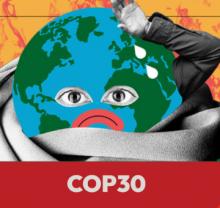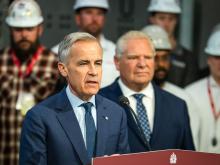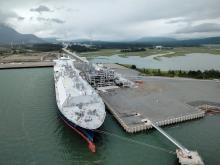Amid the hustle and bustle of downtown Toronto, Thadia Theodore is laying straw over dormant flower beds to prepare them for winter. Tall, glassy buildings surround her on the rooftop farm of her university; construction noise rings out, but she describes it as “peaceful.”










